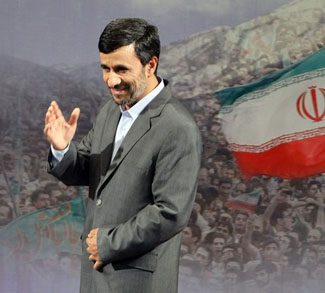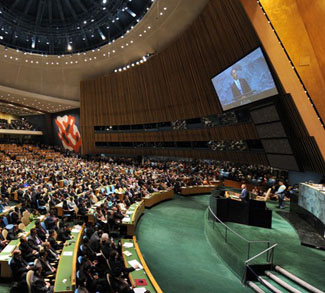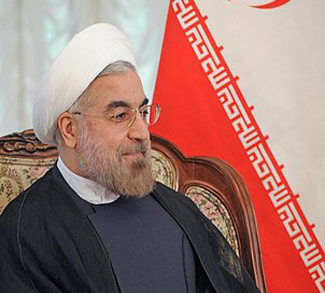The recently passed economic sanctions on Iran will do nothing to force the hand of the Iranian regime with respect to its nuclear program and will not provoke a military response precipitating conflict in the region. It is quite unlikely that we are on the brink of a catastrophic showdown between the West and Iran.
In an unprecedented move, the U.S. imposed sanctions on foreign countries and institutions that conduct business with the Central Bank of Iran. Considering the severity of these new sanctions, many observers are convinced that Iran’s threats to close the Strait of Hormuz will be soon followed by military provocation.
Despite reports to the contrary, Tehran has demonstrated little appetite for military conflict and reacted to the news of the sanctions with characteristic indifference. This nonchalance perhaps belies a certain confidence that the regime has that it is nearly impossible in today’s globalized world to eliminate a vital link in many different international financial pathways. For example, the $20 billion natural gas project in the Caspian Sea lead by BP-PLC has been given the green light to go ahead as planned despite the fact that the Iranian state has a ten percent stake in the project. Furthermore, it is not unreasonable to expect that more nations will follow Japan’s example and appeal to the U.S. for exceptions to the sanctions citing their own difficult economic realities. Countries who do not want to appeal directly for exceptions may seek their own accommodations with Iran through more creative means. Recently, news that India will circumvent the embargo by essentially participating in oil-for gold program has been making the rounds.
Such examples demonstrate the difficulties of sustaining a true blacklist of Iranian financial institutions.
Certainly the Iranian people will feel the pain of the sanctions with the price of food, oil and gold skyrocketing. Life has become much more difficult in Iran; yet those who think that such economic distress will serve as a catalyst to a revolution are misguided. One can envisage how the state could channels people’s economic frustrations into a rally-around-the flag scenario; a scenario made more plausible by the fact that the majority of Iranians support Iran’s right to nuclear energy.
After World War II it became widely thought that international stability and peace could only be built on a strong economic order. This notion seems to have been lost as more and more countries embrace foreign policies intended to cripple Iran’s economy.
Although a prosperous economy is necessary for peace we must be careful to avoid the assumption that the opposite—a distressed economy, necessarily means war is on the horizon. It does not. Intelligent self-interest will prompt Iran to exercise restraint and will resist taking any measures that could ignite a military conflict in the region any time soon.
Mehrnoush Shefiei is a contributor to Geopoliticalmonitor.com



